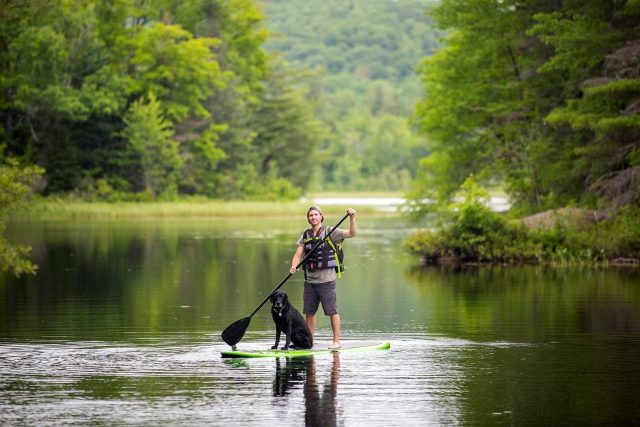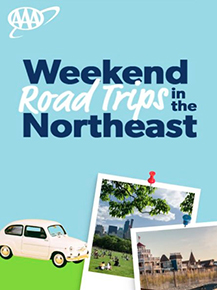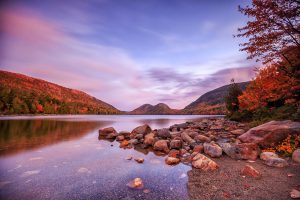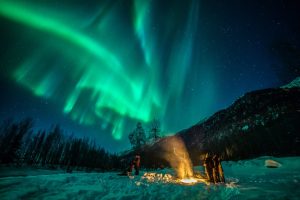With their abundance of iconic sights, it’s no wonder that national parks such as the Grand Canyon and Yosemite are on just about everyone’s must-see list. And though the public may assign east coast state parks second-tier status, some, such as Franconia Notch in New Hampshire and New York’s Niagara Falls, are thronged with tourists. Yet, others remain underrated, despite their beauty. In these parks, you’ll have opportunities to peacefully commune with nature without being surrounded by influencers hoping to snap the next Instagram-worthy shot.
Here are six lesser-known Northeast state parks, all worth a visit.
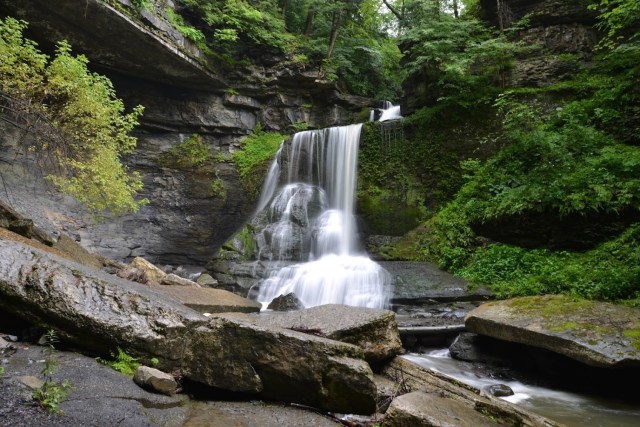
Fillmore Glen State Park, N.Y.
Just a half-hour from Ithaca, this more than 900-acre park is noted for stunning waterfalls and a stream-fed swimming hole, the park’s most popular feature, where you’ll also notice picnic tables on a spacious lawn and a bathhouse. After climbing a set of steep stone stairs on the 1.3-mile Gorge Trail, you’ll follow a creek in the narrow gorge with impressive rock formations dating back to between 10,000 and 21,000 years ago. Crossing a series of footbridges, you’ll view a quintet of waterfalls. But, if you want to see cascades without a workout, take a short walk from the parking lot to 50-foot-high Cowshed Falls. It got its name because it’s said cows would shelter under the adjacent rock overhang during stormy weather.
Machimoodus State Park, Conn.
Located on the banks of the Salmon River, this Northeast state park features a 300-acre expanse of hemlock and oak woodlands, plus a swatch with wildflower-bedecked meadows and a trio of ponds where you can fish for bass. Native Americans who traveled through these lands gave it the name Machimoodus meaning “place of noises.” (In the early 1980s, scientists determined the “unnatural” rumbles were a result of deep micro quakes, the sounds echoing in a cave.) Bird watchers will be thrilled with the variety of species, including belted kingfishers and Carolina wrens. Combining the Upper and Lower Vista trails (a 2.5-mile loop) gives you a challenging hike with lovely views of the Salmon and Connecticut rivers, and at observation points, you may spot hawks and eagles.
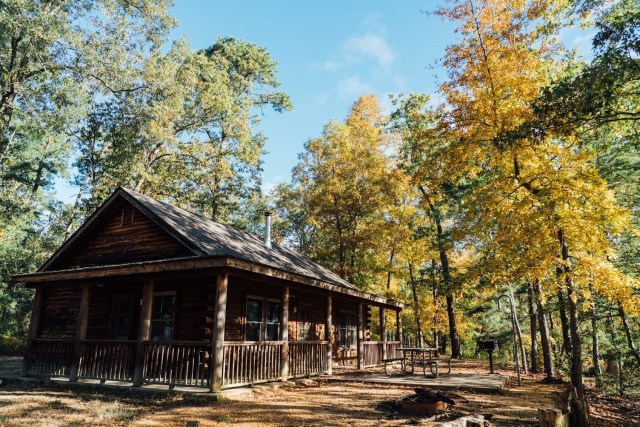
Parvin State Park, N.J.
In this 2,180-acre park located on the outskirts of the Pine Barrens, every season is glorious, including the fall when many of the trees (including black, chestnut and scarlet oaks) display vibrant hues. Birders also flock here at this time of year to view red-eyed vireos, scarlet tanagers and other species. Though swimming in Parvin Lake is a popular summer activity, the rest of the year (in good weather) you can picnic on the beach; fish for bass, catfish and pickerel; and canoe, kayak or paddleboard. Among the 15 miles of (mostly multi-use) trails is the flat, 3-mile Parvin Lake Trail circles that lake is woodsy in parts and goes along boardwalks to cross wet areas and streams. Along the way, gaze at the placid lake where you’ll probably see turtles and maybe even whitetail deer or red foxes.
Pillsbury State Park, N.H.
Straddling the towns of Goshen and Washington, this 5,500-acre state park is peppered with plenty of wetlands and almost a dozen ponds, where you may spy loons. A chain of four ponds allows you to paddle from one to the next: Butterfield, May, Mill and North ponds, in that order. North Pond has lovely mountain views, including Mount Sunapee, while wee islands dot May Pond (the biggest). There are myriad coves around Mill Pond where you might see wildlife, including herons, beavers and even moose. And, when you paddle from Butterfield to May Pond, you’ll navigate an especially serene section through a channel (the Narrows) lined with pine trees.
Snake Den State Park, R.I.
Once owned by a series of farm families, including the Dame Family, this land, now a 1,000-acre park, is across the street from the remaining portion of their farm with pick-your-own offerings. The park’s name comes from a deep fissure that resembles a canyon of sorts. And, sure, there are snakes (such as the Eastern garter and Northern black racer), but they’re not poisonous. A maze of not-well-marked, undulating trails weave through the wetlands and forests dense with trees, including red maple and white oak. Hiking many of them provides reminders (such as low stone walls) of past cattle grazing.
Mega rock outcroppings (glacial erratics) dot the landscape at Snake Den, where you’ll cross numerous creeks on footbridges. Don’t be surprised by an array of sometimes colorful mushroom species, including purple violet cort and the red-capped Russula that slugs love. (Look, but don’t touch or eat.) In the fall, you’ll also notice the twittering of goldfinches, black-capped chickadees and other birds, as well as the dramatically crimson meadowhawks and other delicate dragonflies flitting about.
Wompatuck State Park, Mass.
This 3,500-acre Northeast state park – taking its name from Josiah Wompatuck, the Native American chief who had long claimed this land – is blessed with ponds, streams and extensive forests of mountain laurel, white Atlantic cedar and other types of trees. With the park’s network of paved and unpaved trails, road cyclists and mountain bikers alike find plenty to relish. For a short, easy bike ride, the 1.5-mile Whitney Spur Rail Trail is mostly level, coursing through woodlands and wetlands, passing boulders that are remnants of the last glaciation. Mountain bikers can tackle some adventurous, fast, single-track that requires riding over rocks and hopping over logs. Cycling down Prospect Hill, for example, you’ll be negotiating a series of switchbacks from the park’s highest point.
What are your favorite state parks in the Northeast? Tell us in the comments.
Featured image: Pillsbury State Park. (Courtesy of New Hampshire State Parks)

